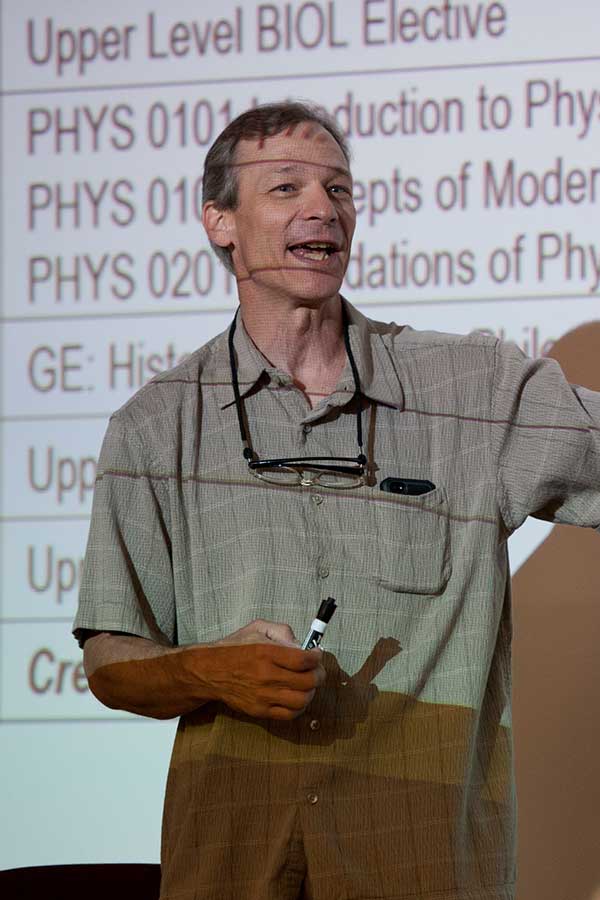
Pre-Chiropractic
Chiropractors use their hands to make spinal adjustments and perform other alternative treatments to properly align a person’s musculoskeletal structure so they can heal without surgery or medication.
Why study pre-chiropractic at Pitt-Bradford?
If you want to become a chiropractor, you will need to take many prerequisite courses that chiropractic schools require. We will work closely with you to make sure you have taken the appropriate courses.
What will I learn?
You’ll get a solid foundation in the biological sciences, physical sciences, and behavioral sciences, so you can succeed in a graduate-level chiropractic medicine program. The undergraduate research and chiropractor shadowing experiences will help you become strong candidates.

What can I do with a degree in pre-chiropractic?
You’ll have many opportunities to complete other highly recommended activities that chiropractic schools are looking for, such as undergraduate research and chiropractor shadowing.
Employers:
- Chiropractic clinics
- Biomedical research labs
- Chiropractic schools
Featured Courses
-
BIOL 0212
Human Anatomy And Physiology 1A study of the gross and microscopic anatomy, physiology, and homeostatic mechanisms of the human body, stressing the relationship of structure to function. This semester covers cell types and tissues and the cellular processes of osmosis, diffusion, and active and passive transport; the integumentary system; the skeletal system and joints and bone metabolism; the muscular system and mechanisms of muscular contraction; the nervous system, mechanism of nerve impulse conduction, and the special and somatic senses. Three hours of lecture per week. -
BIOL 1306
NeurobiologyThe biology of nervous systems will be studied at various levels, including the cellular and molecular biology of neurons, sensory systems, motor control, and higher cortical functions in humans. All topics are viewed across phyla and from an evolutionary perspective. The course will emphasize scientific reading and oral communication of scientific material. Three hours of lecture and four hours of lab per week.
More to Know
We have an enhanced educational partnership and articulation agreement that provide students with pathways to Northeast’s Doctor of Chiropractic program.
In the 4+3 program, you attend Pitt-Bradford for four years to earn a bachelor’s degree, followed by three years at Northeast to earn your doctorate.